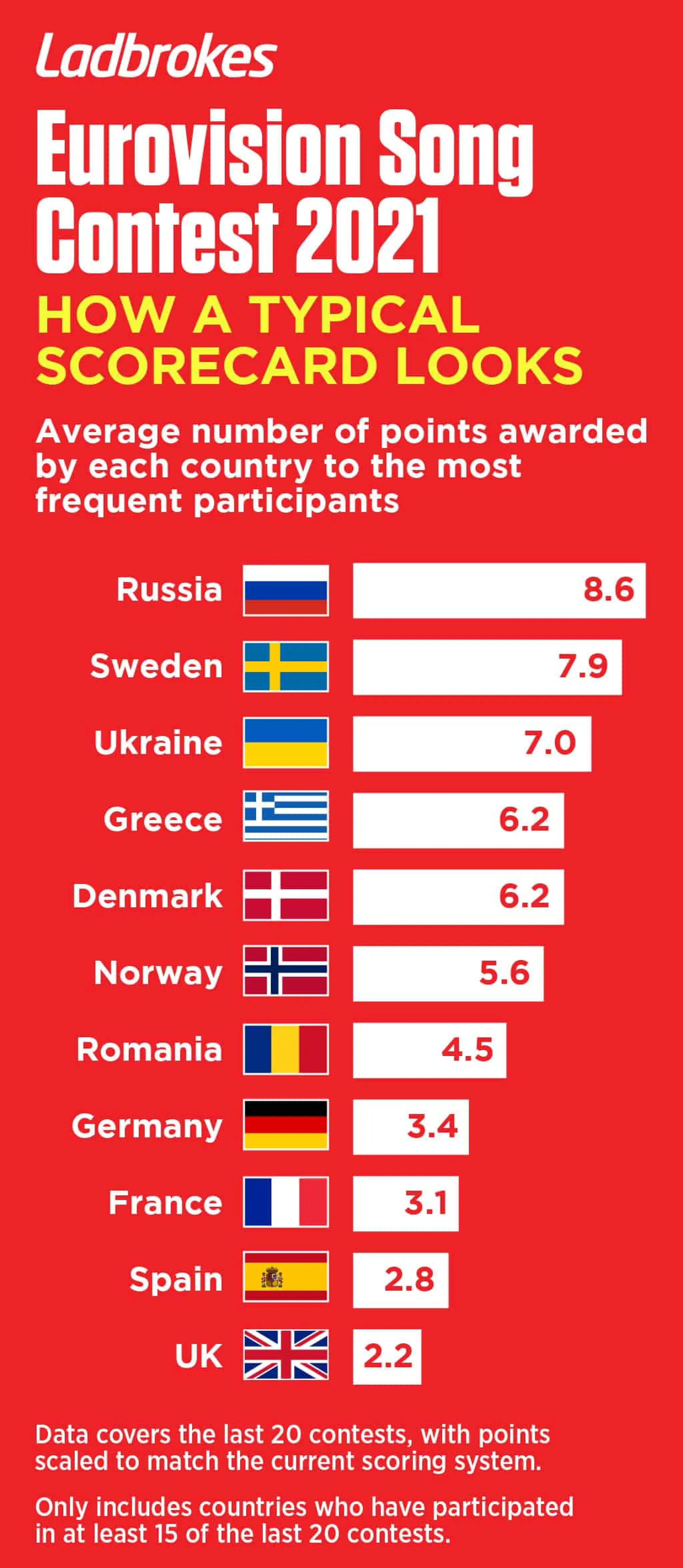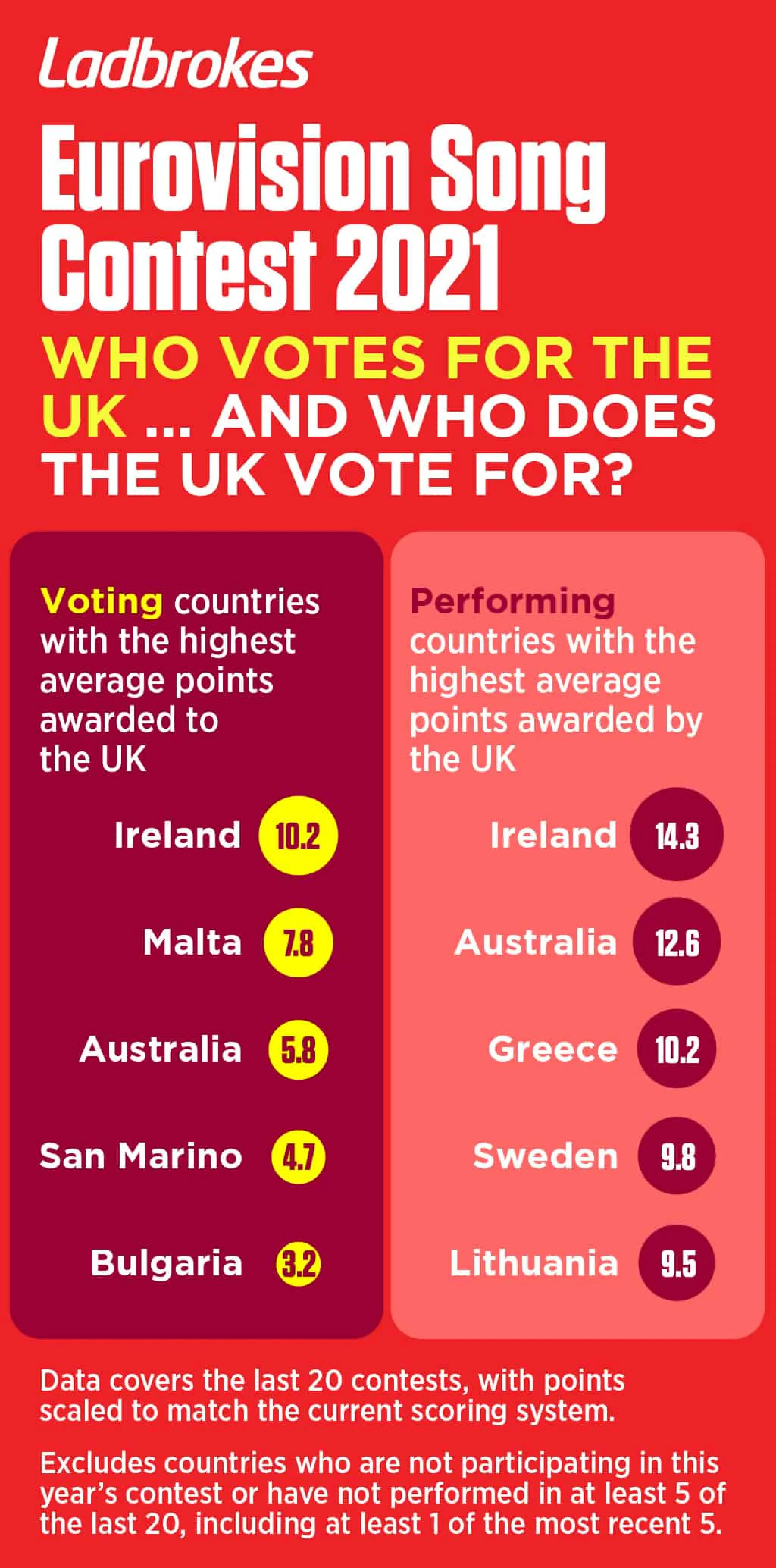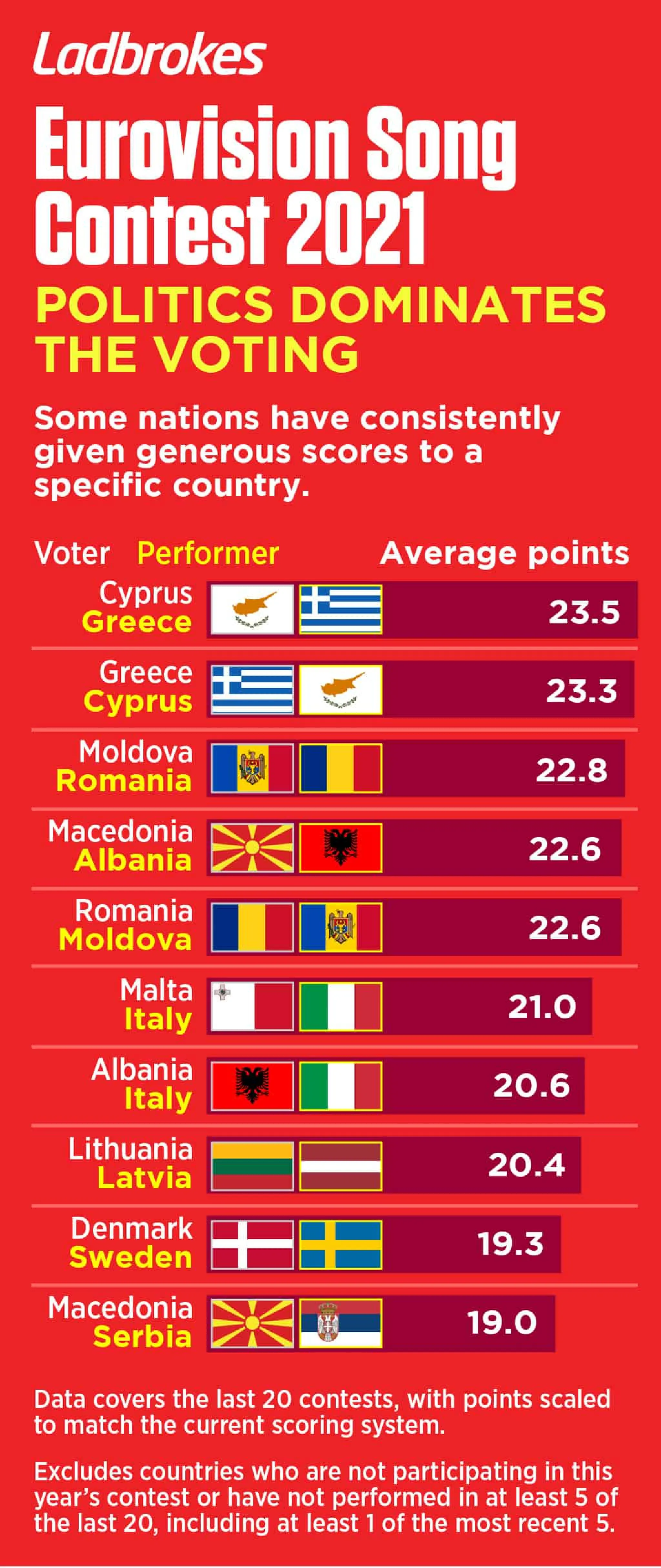Eurovision Song Contest by numbers: Who votes for who?
Published:
Saturday will see the 65th edition of the Eurovision Song Contest take place, with 39 nations voting for their favourite performance.
We’ve looked back at the last 20 contests, from 2000 to 2019, for clues about how this year’s final will pan out, scaling the number of points earned to match the current voting system.

Let’s start by looking at how events normally unfold. As the number of participating countries has varied widely over the last two decades – from as low as 23 in 2001, up to the 43 that competed in 2018 – we’ve focused on the nations who have performed in at least 15 of the last 20 contests.
The average scorecard for the 11 nations that clear our bar of 15 performances would have Russia at the top, followed by Sweden and then Ukraine. In addition to triumphing in 2008, the Russians have finished in the top three a further eight times, so they shouldn’t be written off despite their entry not being considered likely to be the Eurovision 2021 winner.
Ukraine’s typically strong showings are perhaps more relevant this year, given that they are among the favourites in the Eurovision odds at 15/2. They’ve garnered an average of seven points from each voting nation across their 15 entries since 2000, finishing two contests as winners and a further two as runners-up.
Dead last among our 11 regular performers is the UK, which has received a paltry average of just 2.2 points out of a possible 24 from each other nation. It is easy to see why the British entry is a 100/1 outsider yet again this time around.
Interestingly, France are currently second favourites in the Eurovision odds at 7/2 , but it would require a historically strong performance for them to come out on top. French entries have fared almost as poorly as British ones in recent years.
Where could UK votes come from?
While the UK aren’t likely to finish the 2021 contest as winners, the dreaded “nul points” won’t be the only phrase uttered when the votes are announced.

Other English-speaking nations like Ireland and Australia are usually generous when dishing out points to the UK, while fellow Commonwealth members Malta also tend to look kindly on British efforts. The Irish are the only nation to grant the UK entry a double-digit number of points on average.
The UK tends to reciprocate, with Ireland and Australia the largest beneficiaries of British votes, receiving an average of 14.3 and 12.6 points respectively. Malta’s typical return of 8.5 points is also significantly above their overall average of 4.1, suggesting that the UK could edge the Maltese song – currently third favourite to win – over the line this year if the voting in the final is close.
Politics plays a part
This brings us neatly on to the topic of voting alliances. While a good song is obviously key to winning the contest, the voting is also heavily political. Many nations have a track record of generosity towards countries they like or ignoring popular songs because they are being sung by a rival.
The most powerful alliance among regular participants is between Greece and Cyprus. The Cypriots have awarded maximum points to 15 of the 16 Greek entries since 2000, with Greece reciprocating for nine of Cyprus’ 11 performances in this period. Both nations are relative outsiders this year but will surely be counting on each other to boost their totals.

More relevant this time around could be the favour typically shown by Malta and Albania to their Mediterranean neighbour Italy. The Italian entry is the 11/4 favourite in the Eurovision odds for and if they are to secure their first win since 1990 – and better the second place they achieved in 2019 – they will need their allies to deliver.
One factor that could count against Italy is Malta’s status as third favourite, which could see a tactical reduction in the number of points they are willing to shower on a rival. The UK could also play a decisive role in whether Italy will win Eurovision 2021, having given them a paltry average of just 3.6 points over the last two decades: among the lowest of any regular entrant.
Eurovision Info
Where: Rotterdam, Netherlands
When: 20:00, Saturday 22nd May
How to watch: BBC 1
All odds and markets correct as of date of publication





